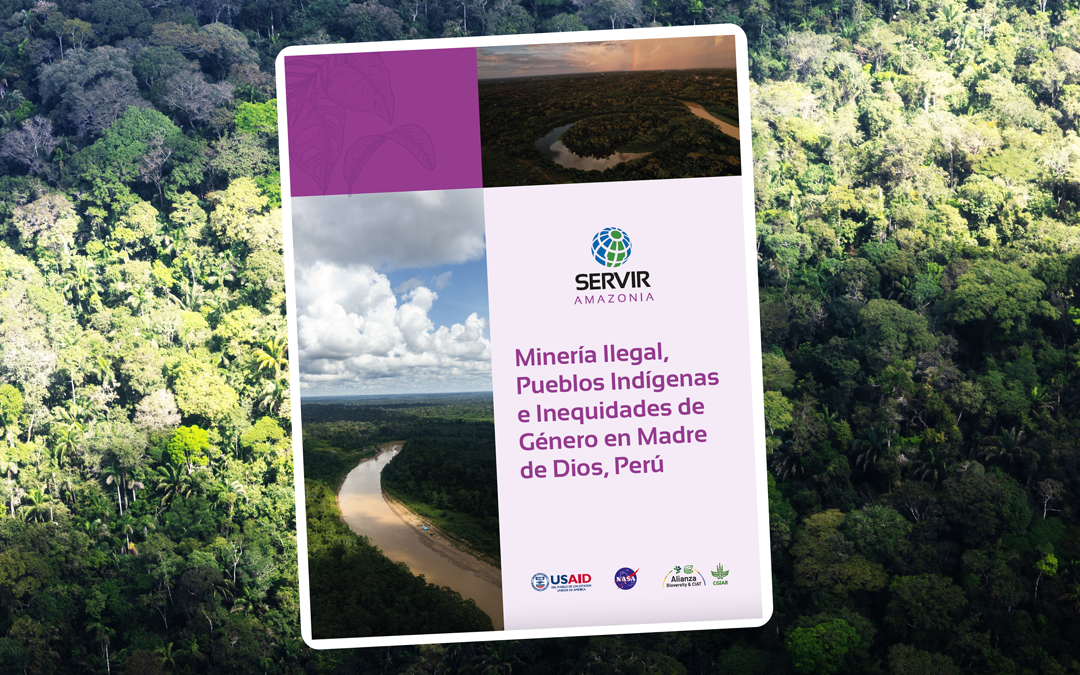The SERVIR-Amazonia Program, in collaboration with its local partner in Peru, Conservación Amazónica – ACCA, has conducted a study to identify, understand, and explain the roles, weaknesses, and opportunities of men and women in the Madre de Dios region, as well as their connection to illegal mining, which is being tracked by the Program through its Radar Mining Monitoring tool, RAMI.
In addition to being one of the main drivers of deforestation in the Amazon, illegal gold mining uses mercury, a highly polluting mineral that not only affects miners due to exposure but is also released into the environment, creating risks for the inhabitants of nearby communities, who, for example, eat fish contaminated with mercury. Women of childbearing age and children are the most vulnerable.
The innovative RAMI technology, which works with radar imagery, enables the observation of forests and their transformations resulting from illegal mining, despite the presence of climate phenomena, such as rain cloud cover. The gender study helps complement these observations to understand the problems and social impacts posed by illegal mining and improve decision-making at the government entities responsible for land management.
The expansion of illegal mining has led to the invasion, dispossession, or acquisition of lands from indigenous communities by outsiders, who come to engage in illegal gold mining. Likewise, these outsiders have led to an increase in the abuse of women and – on some occasions – the abandonment of their families once the mining exploitation has ended.
Fostered by this type of mining, such problems influence the change of perspective of local communities and their decisions on who can enter and operate in their territories.
As a main conclusion, the study draws attention to the need for further intervention by the State to tackle these problems, while promoting the engagement of more local stakeholders in the detection of illegal mining and the interpretation of results by communicating their findings. For this purpose, it stresses the importance of using cutting-edge geospatial technology tools, such as RAMI.
Marina Irigoyen, Gender Advisor at SERVIR-Amazonia and the study’s lead author explained that “it is not new that illegal mining is sweeping away soils and forests in Madre de Dios, and that it has promoted illegal prostitution of women who arrive from other villages, but we have found that communities are getting increasingly involved in these activities, transforming the relationships and ways of life of men and women, for which it is important to understand gender inequities in this region. We need to discuss these situations. RAMI can help detect illegal mining, but further intervention is required from local actors.”
To access the full text of this study (in Spanish), please access to Harvard database repository.



